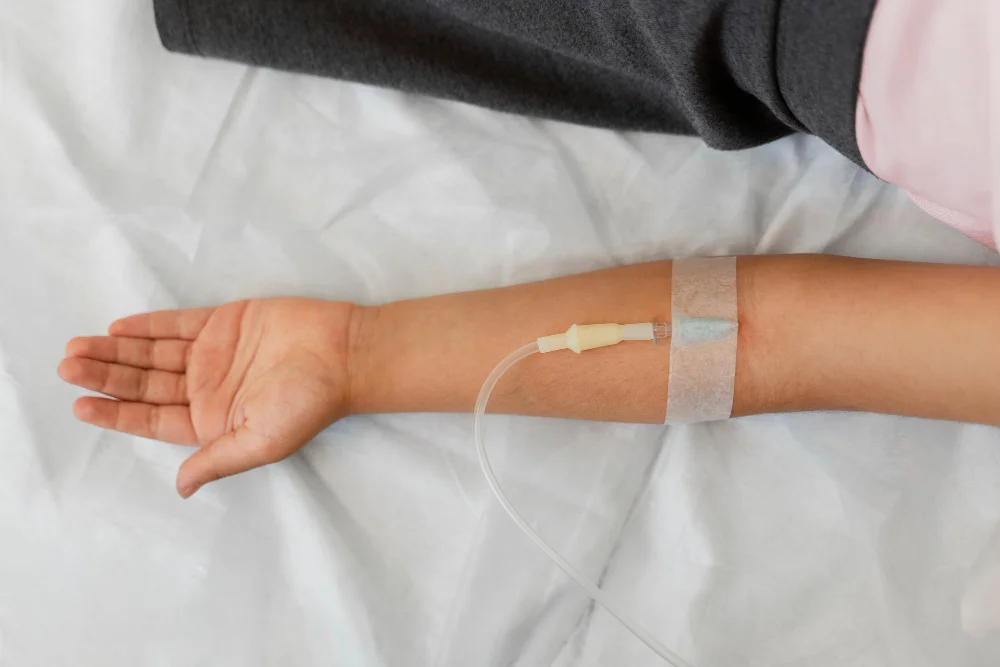Hormonal imbalances in men are becoming an increasingly common issue, affecting everything from energy levels to mood, weight, and sexual health. While many associate hormonal problems with women, men also experience fluctuations in key hormones such as testosterone, thyroid hormones, and cortisol. In this blog, we’ll discuss the top causes of hormone problems in males, the symptoms of hormonal imbalance in men, and how to naturally restore hormone balance.
By incorporating high-search keywords and addressing common concerns, this article will provide useful insights into testosterone problems, thyroid imbalances, and more, helping you understand how to address these issues effectively.
Low Testosterone Levels in Men (Hypogonadism)
Low testosterone is one of the most common causes of hormonal imbalances in men. Testosterone is crucial for male health, influencing muscle mass, energy, mood, and libido. As men age, testosterone levels naturally decline, but many lifestyle factors can accelerate this process.
Causes of Low Testosterone:
- Aging: Testosterone decreases by about 1% per year after age 30.
- Obesity: Increased body fat, particularly abdominal fat, can lower testosterone levels.
- Chronic illnesses: Conditions like type 2 diabetes, sleep apnea, and heart disease are linked to low testosterone.
- Medications: Certain medications such as opioids or corticosteroids can reduce testosterone production.
Symptoms of Low Testosterone:
- Fatigue and low energy
- Decreased libido and erectile dysfunction
- Loss of muscle mass and increased body fat
- Mood swings, depression, or irritability
How to Address Low Testosterone:
- Testosterone Replacement Therapy (TRT): Options include injections, patches, or gels to boost testosterone.
- Diet and Exercise: Focus on a healthy diet (rich in healthy fats, lean proteins, and vegetables) and engage in regular physical activity, especially strength training.
- Stress Management: High levels of stress can reduce testosterone. Incorporate relaxation techniques like yoga or meditation.
Thyroid Imbalance in Men (Hypothyroidism and Hyperthyroidism)
The thyroid is a small butterfly-shaped gland in the neck that produces hormones regulating metabolism, energy, and mood. Both hypothyroidism (low thyroid function) and hyperthyroidism (overactive thyroid) can cause significant health issues in men.
Causes of Thyroid Imbalance:
- Autoimmune Diseases: Conditions like Hashimoto’s thyroiditis (hypothyroidism) and Graves’ disease (hyperthyroidism).
- Nutrient Deficiencies: Lack of essential nutrients like iodine, selenium, and zinc can impair thyroid function.
- Environmental Toxins: Exposure to endocrine-disrupting chemicals (EDCs) in plastics, pesticides, and personal care products can affect thyroid health.
Symptoms of Thyroid Imbalance:
- Hypothyroidism: Weight gain, fatigue, constipation, depression, and dry skin.
- Hyperthyroidism: Weight loss, rapid heartbeat, anxiety, and insomnia.
How to Address Thyroid Imbalance:
- Medication: Levothyroxine for hypothyroidism and antithyroid drugs for hyperthyroidism.
- Diet: Ensure adequate intake of iodine-rich foods (e.g., seaweed, fish) and selenium (e.g., Brazil nuts, eggs).
- Stress Reduction: Managing stress can help improve thyroid function. Practices like mindfulness and deep breathing are highly effective.
Cortisol Imbalance Due to Chronic Stress
Cortisol, often called the stress hormone, is produced by the adrenal glands in response to stress. While cortisol is essential for dealing with short-term stress, chronic stress can lead to elevated cortisol levels, which disrupt other hormones like testosterone and insulin.
Causes of Cortisol Imbalance:
- Chronic Stress: Work pressures, financial problems, and personal issues can keep cortisol levels elevated.
- Sleep Deprivation: Poor sleep can trigger the release of excess cortisol, further affecting sleep and causing a vicious cycle.
- Poor Diet: High sugar intake, processed foods, and caffeine can increase cortisol production.
Symptoms of High Cortisol:
- Anxiety and irritability
- Weight gain, especially around the belly
- Sleep disturbances
- Reduced libido and sexual dysfunction
How to Address Cortisol Imbalance:
- Stress Management: Techniques like meditation, yoga, and deep breathing can help lower cortisol levels.
- Quality Sleep: Aim for 7-9 hours of sleep each night to support cortisol regulation.
- Dietary Changes: Avoid excessive caffeine and sugar. Incorporate more whole foods, healthy fats, and vegetables into your diet.
Estrogen Dominance in Men
While estrogen is typically considered a female hormone, men also produce it in smaller amounts. Estrogen dominance occurs when the levels of estrogen are disproportionately high compared to testosterone. This can lead to a variety of symptoms, especially as men age.
Causes of Estrogen Dominance:
- Obesity: Fat tissue converts testosterone into estrogen, leading to estrogen dominance.
- Environmental Toxins: Exposure to chemicals like BPA (found in plastics) can disrupt hormone balance.
- Chronic Alcohol Use: Excessive alcohol intake can increase estrogen levels and decrease testosterone.
Symptoms of Estrogen Dominance:
- Increased body fat, especially around the chest or hips
- Reduced libido and erectile dysfunction
- Mood swings and irritability
- Decreased muscle mass
How to Address Estrogen Dominance:
- Lose Weight: Reducing excess body fat can help decrease estrogen levels.
- Minimize Toxin Exposure: Choose organic products and avoid plastics and chemicals that disrupt hormone balance.
- Exercise: Strength training and cardiovascular exercise help reduce estrogen levels and increase testosterone.
Insulin Resistance and Hormonal Imbalance
Insulin resistance is a condition where the body’s cells become less responsive to insulin, leading to higher blood sugar levels. This can have a significant impact on male hormone levels, including testosterone.
Causes of Insulin Resistance:
- Poor Diet: Diets high in refined carbs and sugars can contribute to insulin resistance.
- Obesity: Excess fat, especially around the belly, increases the risk of insulin resistance.
- Lack of Physical Activity: Sedentary lifestyles are a major factor in the development of insulin resistance.
Symptoms of Insulin Resistance:
- Increased hunger and cravings, especially for sugar
- Weight gain, especially around the midsection
- Fatigue and lack of energy
- Difficulty losing weight
How to Address Insulin Resistance:
- Dietary Changes: Focus on a low-carb or ketogenic diet to improve insulin sensitivity.
- Exercise Regularly: Physical activity helps reduce insulin resistance. Incorporate both strength training and cardio into your routine.
- Manage Stress: Chronic stress can worsen insulin resistance, so regular relaxation techniques are important.
Sleep Apnea and Hormonal Imbalance in Men
Sleep apnea, particularly obstructive sleep apnea (OSA), is a common condition where the airway becomes blocked during sleep, causing breathing to stop and start. Sleep apnea can significantly affect hormone regulation, leading to imbalances in testosterone, cortisol, and insulin.
Causes of Sleep Apnea:
- Obesity: Excess weight around the neck can increase the risk of sleep apnea.
- Age: Sleep apnea becomes more common with age.
- Alcohol Use: Alcohol can relax the muscles in the throat, worsening sleep apnea.
Symptoms of Sleep Apnea:
- Loud snoring and choking or gasping for air during sleep
- Excessive daytime fatigue
- Difficulty concentrating
- Decreased libido and erectile dysfunction
Conclusion: Achieve Hormonal Balance with Yutopia Care
Hormonal imbalances don’t have to control your life. At Yutopia Care, we offer personalized solutions to help men manage issues like low testosterone, thyroid imbalances, and cortisol fluctuations. Our expert team provides tailored treatments to restore balance and improve your health and well-being.
Take the first step toward a healthier, more energized you—visit Yutopia Care today and schedule your consultation.



